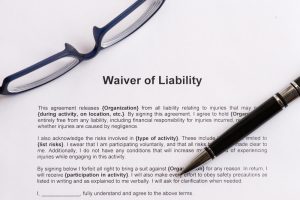Please Note: This blog is designed for general information only. The information presented at this site is not intended to provide legal advice or a legal opinion and should not be construed as the formation of an attorney-client relationship. Specific questions should be directed to an attorney at NowackHoward, LLC or to another lawyer.
By Executive Order entered May 12, 2020, Governor Brian Kemp removed outdoor swimming pools from the list of facilities prohibited from operating under his April 23, 2020 Executive Order. More recently, Governor Kemp issued a new Executive Order on May 28, subjecting community swimming pools to 21 mandatory measures imposed on all business establishments, non-profit corporations and organizations considered non-Critical Infrastructure with in-person operations.
Although swimming pools may now open in Georgia, the May 12 and May 28 Orders have left HOA and condominium association boards scrambling to know whether and how to open their community’s pool. Directors are in the position of a diver looking into murky and choppy waters and deciding whether to jump. HOA attorneys offer a response: Yes, you can jump, but should you?
Like the diver, in making the decision on whether to “jump” and open your community’s pool, Boards must ask: (1) do you have a life jacket; (2) can you see a reasonably safe path forward through the water; and (3) is there anything out there you can hold on to if you get into trouble?
The below is written to provide general guidance for HOA Boards on best practices when reopening a community swimming pool. Please contact our HOA attorneys to address your community’s specific issues and provide legal advice for your association.
- Insurance Considerations: You are jumping in without a life jacket.
If the Board of Directors opens the association’s swimming pool, it will likely do so without insurance for contraction of COVID-19 at the pool.
Even without the risk of COVID-19, swimming pools pose a large risk to community associations. From a liability perspective, the only reason HOAs and condominium associations can operate swimming pools is the availability of liability insurance to pay the association’s legal fees and any judgment entered against an association for accidental drownings and other pool-related injuries. However, general liability and directors’ and officers’ insurance policies generally exclude coverage for viruses and infectious disease, which would include claims for contracting COVID-19, and do not pay the attorney’s fees and costs to defend a claim arising from them.
Without insurance coverage, if your association is sued by someone claiming to have contracted COVID-19 at the pool, the association must pay all attorney’s fees, other legal expenses and any judgment entered against the association out of its own funds. Most associations that open their community pools or any other amenities will do so with no insurance coverage for any claims or lawsuits filed for someone contracting COVID-19 at the amenity.
Recommended Action: Before opening your community’s pool, we recommend you contact your association’s insurance carrier to confirm your coverage. Some insurers are strongly encouraging their insureds to keep pools closed. The best practice is to check with your carrier to be certain that any decisions your Board makes regarding the pool will not cause cancellation of insurance coverage.
- Government Mandates: Many associations will not have the resources to navigate the water safely.
Community associations must comply with Governor Kemp’s mandatory measures and all local government requirements and should follow the Georgia Department of Public Health Guidance.
While we cannot peer through the murky water to see what form they will take or how many there will be, HOA attorneys expect there will be lawsuits against community associations stemming from COVID-19. In any such lawsuit, it will be critical to the association’s defense that it followed all governmental orders and regulations in opening and operating the pool. For community association pools, that means following the mandatory operational requirements applicable to the association as a non-profit corporation in Governor Kemp’s May 28 Executive Order, as well as the Georgia Department of Public Health guidelines for public swimming pools and any applicable County or City requirements.
Recommended Action: Boards should determine if their association can implement and comply with Governor Kemp’s mandatory operational requirements for non-profit corporations, the Georgia Department of Public Health guidelines for public swimming pools and any applicable local government requirements. If your association cannot implement these measures, HOA attorneys advise that the Board’s duty is to keep the pools closed and not subject the association to the risk of being sued. Without insurance, one lawsuit can potentially financially devastate an association.
- Signage and Waivers: There is no lifesaver that can protect your association from all liability from COVID-19 claims.
Community associations must post mandated signage when reopening a community swimming pool, but even those notices or signed waivers will not prevent an association from being sued.
If your association makes the decision to open the pool, before diving in, look below to decide where to enter the water. First and foremost, do not jump to open if your pool has not been issued an operating permit by your county. With an operating permit, the safest path forward to open the pool and protect the association from liability is to make sure the association is complying with the Governor’s Order, Georgia Department of Public Health Guidance, and any applicable county or city requirements. While even that will not prevent a lawsuit, it will make it less likely that the association will be found liable for the COVID-19-related injuries.
a. Required and Recommended Signage.
The Governor’s Order mandates that associations post a sign on the front of the facility stating that “individuals who have a fever or other symptoms of COVID-19 shall not enter.” The Governor’s Order also requires that the association place notices that encourage hand hygiene at the entrance to the facility and in other areas where they are likely to be seen.
The CDC recommends posting signs about how to stop the spread of COVID-19, properly wash hands, promote everyday protective measures, and properly use a cloth face covering in highly visible locations (for example, at deck entrances and at sinks).
In addition to signage required by the Executive Order, our HOA attorneys continue to recommend that signs be posted at pools and other amenities such as: USE AT YOUR OWN RISK. COVID-19 COULD BE PRESENT. Should the association be sued, this signage will provide the association with the defense that the person suing “assumed the risk” of contracting COVID-19 and a strong argument that the association should not be held liable.
- Use of “Waivers”.
 Many Boards have asked whether and how to require residents to sign a waiver to use the association’s swimming pool this summer. It’s important to first note that simply requiring every user to sign a waiver does not prevent a lawsuit against the association. Like inflatable water wings, a waiver creates a false sense of safety that it prevents a person from filing a lawsuit. A waiver, like posted signs, only provides an association with a defense. Because of the ongoing Public Health State of Emergency and the Governor’s mandates, it is very likely courts would invalidate these waivers as being against public policy. If that happens in a lawsuit, your situation will be akin to water wings deflating while in the deep end with no lifeguard in sight.
Many Boards have asked whether and how to require residents to sign a waiver to use the association’s swimming pool this summer. It’s important to first note that simply requiring every user to sign a waiver does not prevent a lawsuit against the association. Like inflatable water wings, a waiver creates a false sense of safety that it prevents a person from filing a lawsuit. A waiver, like posted signs, only provides an association with a defense. Because of the ongoing Public Health State of Emergency and the Governor’s mandates, it is very likely courts would invalidate these waivers as being against public policy. If that happens in a lawsuit, your situation will be akin to water wings deflating while in the deep end with no lifeguard in sight.
There is no document that prevents/prohibits a person from filing a lawsuit. A waiver provides an association with a defense. The uninsured cost of defense discussed above will be incurred by the association and paid by its members. However, Boards that decide to open their community’s pools may want to consider requiring users to execute an Assumption of the Risk. As the name indicates, a signer expressly acknowledges there is a risk and expressly agrees to assume that risk. It is a significantly stronger defense than a waiver. Contact NowackHoward, LLC or your HOA attorneys for assistance.
Recommended Action: Boards must place the Governor’s mandated signage at the swimming pools and related facilities and should place all CDC recommended signs and messages. In addition, we recommend posting: USE AT YOUR OWN RISK. COVID-19 COULD BE PRESENT.
When in Doubt, Consult with Expert HOA Attorneys
We understand the enormous pressure being placed on some Boards to open community pools, and we recognize the difficulty of the decisions you must now make as community leaders. The decision is more complex than a simple “yes” or “no” answer, due to the potential exposure of many of your neighbors to this virus.
The only way for Boards to make this decision is to understand the nuanced ramifications involved when deciding whether to open. Boards must consider all the requirements for operation and the risks of liability before determining if the time is right to open the pool. Ultimately, when a Board makes the decision to jump off the diving board and into the uncharted waters of COVID-19, it is making the decision on behalf of all the association members.
NowackHoward’s HOA attorneys are here to help you navigate the issues and determine what is best for your community. Please call us at (770) 863-8900 or fill out our contact form online to discuss your community’s specific issues and unique challenges, including communication with your members regarding your decision. We are here to support you!


